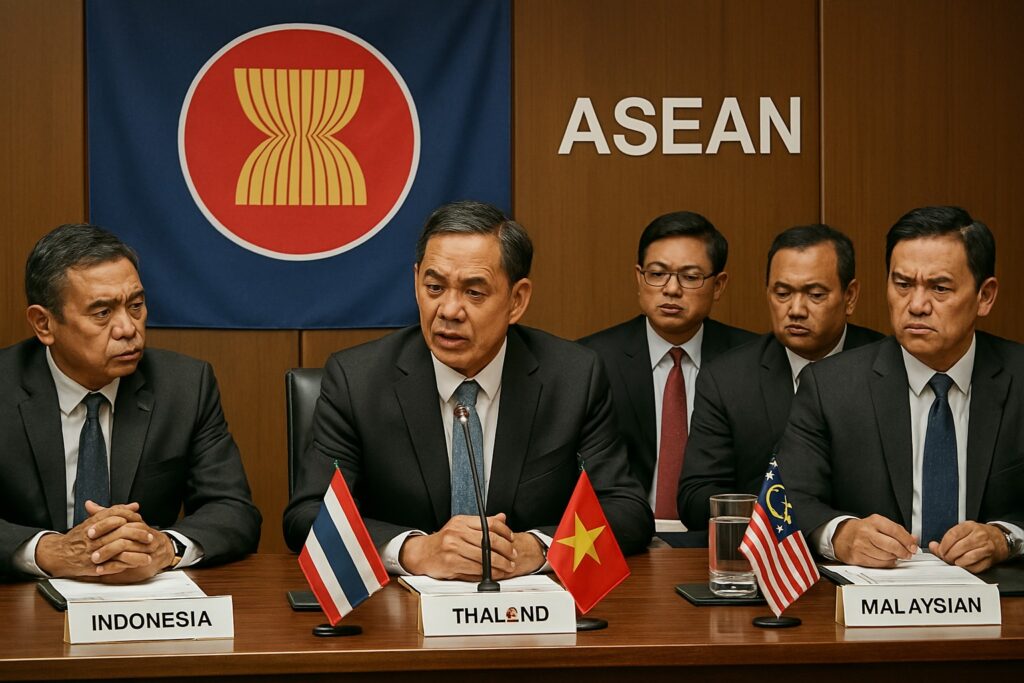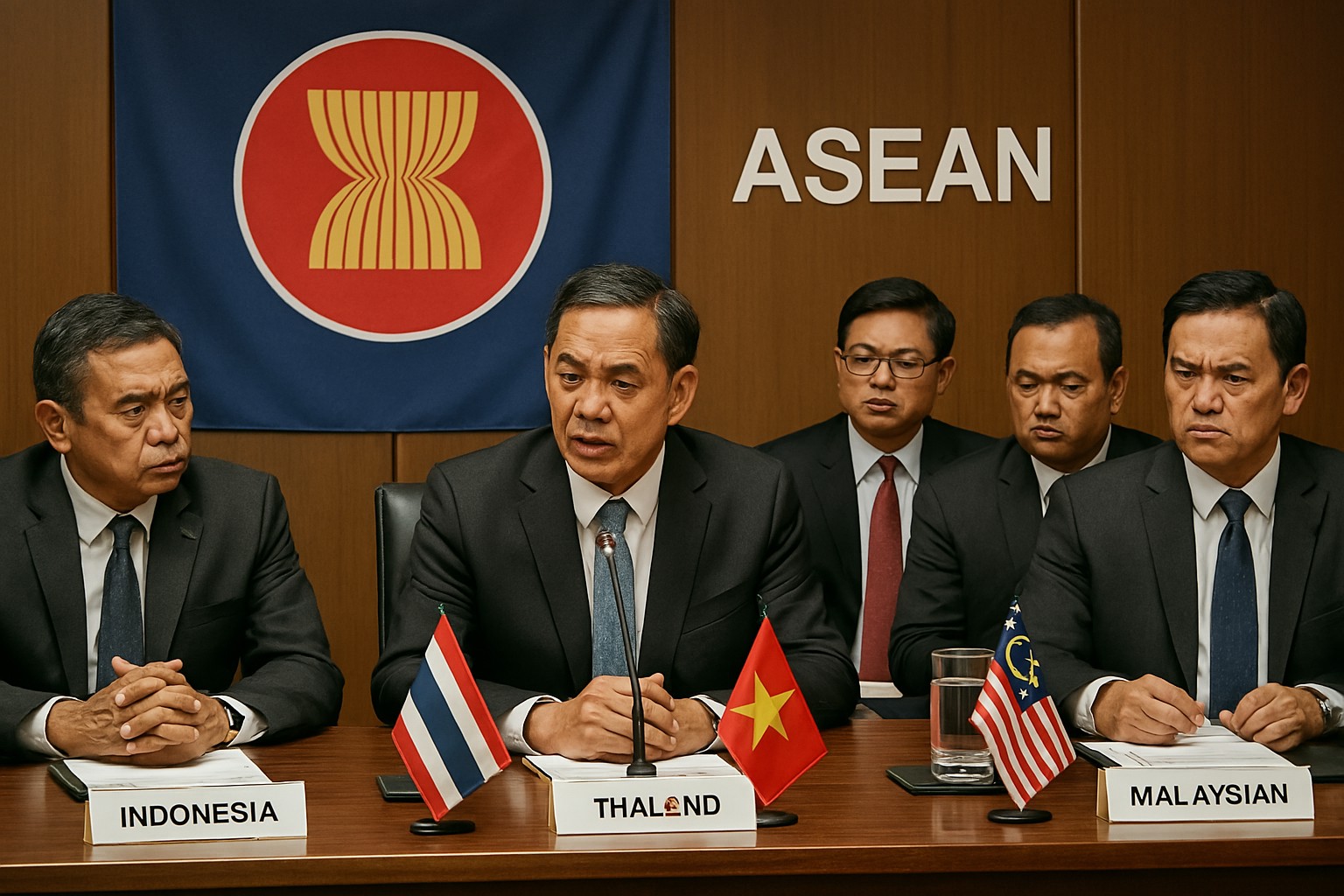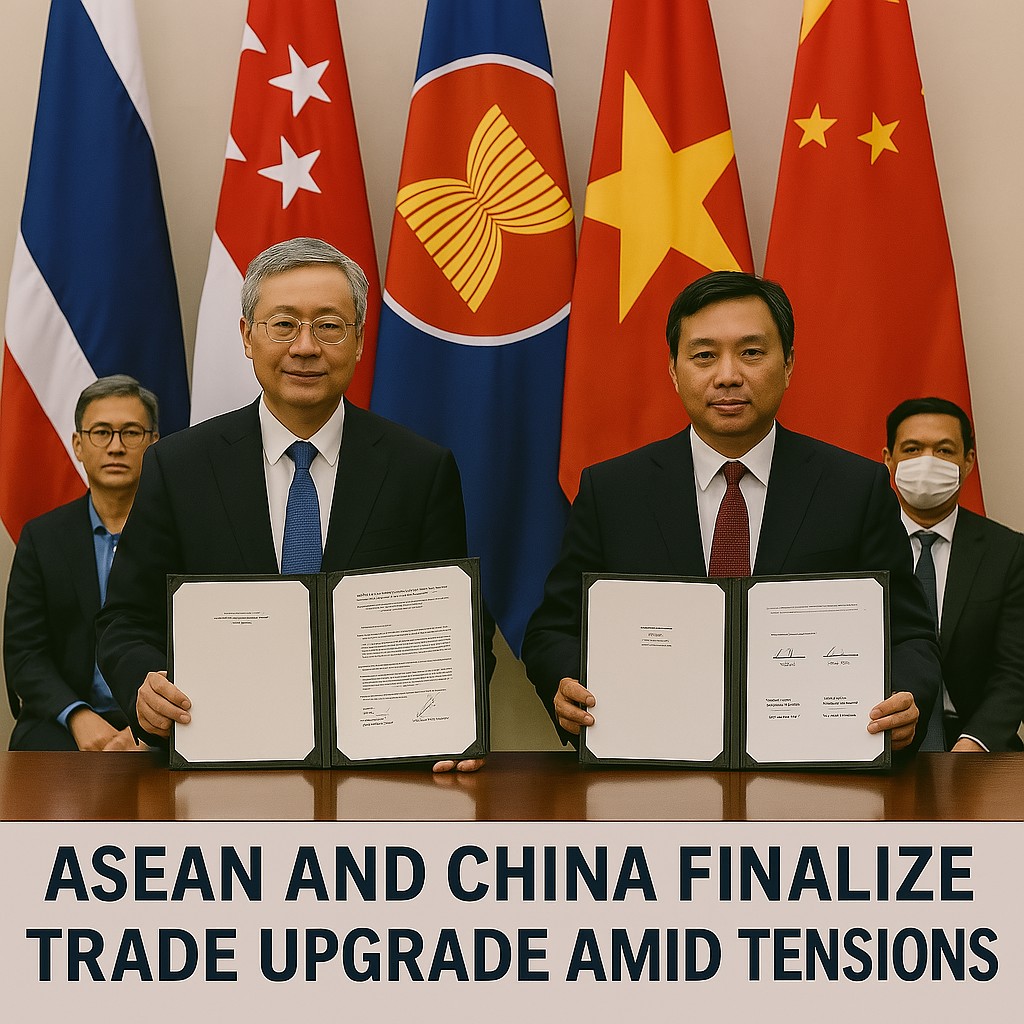
On July 15, ASEAN finance ministers convened an emergency summit in Jakarta to address the escalating impact of U.S. tariffs on regional exports. The meeting, prompted by President Trump’s July 10 announcement of expanded duties on electronics and textiles, marks a turning point in Southeast Asia’s economic diplomacy.
Indonesia and Thailand led the charge, proposing a bloc-wide countermeasure that includes fast-tracking trade agreements with the EU and India. “We must not allow external powers to dictate our economic trajectory,” said Thai Finance Minister Anurak Suthamchai. The proposal includes a regional digital currency pilot and a shared logistics corridor to bypass tariff chokepoints.
Vietnam, meanwhile, reported a 12% drop in electronics exports to the U.S. in Q2, prompting Hanoi to accelerate its pivot toward European markets. Malaysia and the Philippines echoed concerns over supply chain disruptions, with both countries seeing delays in semiconductor shipments and automotive parts.
The summit also spotlighted China’s growing influence, with Beijing offering tariff-free access to its markets for ASEAN members willing to deepen Belt and Road cooperation. While Laos and Cambodia expressed interest, Singapore and Vietnam warned against overreliance on Chinese trade routes.
Security concerns were also raised, as Myanmar’s junta announced a new satellite surveillance program with Russian backing, raising alarms over regional data sovereignty. ASEAN’s cybersecurity task force is now reviewing the implications of foreign-backed digital infrastructure.
The July 15 summit concluded with a joint communiqué emphasizing “economic self-determination” and calling for a review of ASEAN’s trade dependencies. While mainstream outlets focused on the diplomatic tone, right-leaning observers see this as a quiet rebellion against Western economic coercion and a bid to reclaim strategic autonomy.




